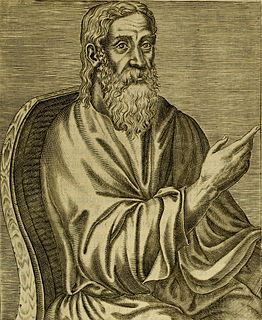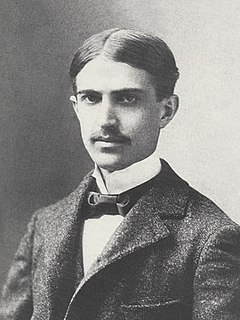A Quote by Francois de La Rochefoucauld
Men have written in the most convincing manner to prove that death is no evil, and this opinion has been confirmed on a thousand celebrated occasions by the weakest of men as well as by heroes. Even so I doubt whether any sensible person has ever believed it, and the trouble men take to convince others as well as themselves that they do shows clearly that it is no easy undertaking.
Related Quotes
This Book had to be written by one of three people: good men, bad men or God. It couldn't have been written by good men because they said it was inspired by the revelation of God. Good men don't lie and deceive. It couldn't have been written by bad men because bad men would not write something that would condemn themselves. It leaves only one conclusion. It was given by divine inspiration of God.
Perhaps five or even ten per cent of men can do something rather well. It is a tiny minority who can do anything really well, and the number of men who can do two things well is negligible. If a man has any genuine talent, he should be ready to make almost any sacrifice in order to cultivate it to the full.
The Christians who engaged in infamous persecutions and shameful inquisitions were not evil men but misguided men. The churchmen who felt they had an edict from God to withstand the progress of science, whether in the form of a Copernican revolution or a Darwinian theory of natural selection, were not mischievous men but misinformed men. And so Christ's words from the cross are written in sharp-edged terms across some of the most inexpressible tragedies of history: 'They know not what they do'.
Consider what you have in the smallest well-chosen library-a company of the wisest and wittiest men which can be plucked out of all civilized countries in a thousand years. The men themselves were then hidden and inaccessible. They were solitary, impatient of interruption, and fenced by etiquette. But now they are immortal, and the thought they did not reveal, even to their bosom friends, is here written out in transparent words of light to us, who are strangers of another age.
Men create their own gods and thus have some slight understanding that they are self-fabricated. Women are much more susceptible, because they are completely oppressed by men; they take men at their word and believe in the gods that men have made up. The situation of women, their culture, makes them kneel more often before the gods that have been created by men than men themselves do, who know what they've done. To this extent, women will be more fanatical, whether it is for fascism or for totalitarianism.
It is tempting to believe that social evils arise from the activities of evil men and that if only good men (like ourselves, naturally) wielded power, all would be well. That view requires only emotion and self-praise - easy to come by and satisfying as well. To understand why it is that 'good' men in positions of power will produce evil, while the ordinary man without power but able to engage in voluntary cooperation with his neighbors will produce good, requires analysis and thought, subordinating emotions to the rational.
The wildest dreams of wild men, even, are not the less true, though they may not recommend themselves to the sense which is most common among Englishmen and Americans to-day. It is not every truth that recommends itself to the common sense. Nature has a place for the wild clematis as well as for the cabbage. Some expressions of truth are reminiscent,--others merely sensible, as the phrase is,--others prophetic.
I believe that fallen creatures perish, perish for ever, for only good can live, and good has not been theirs; but how durst men forge our Saviour's words "eternal death " into so horrible a meaning? And even if he did use other words, and seem to countenance such a meaning for them (and what witness have we that He did, except that of men whose ignorance or prejudice might well have interpreted these words wrongly as they did so many others?



































